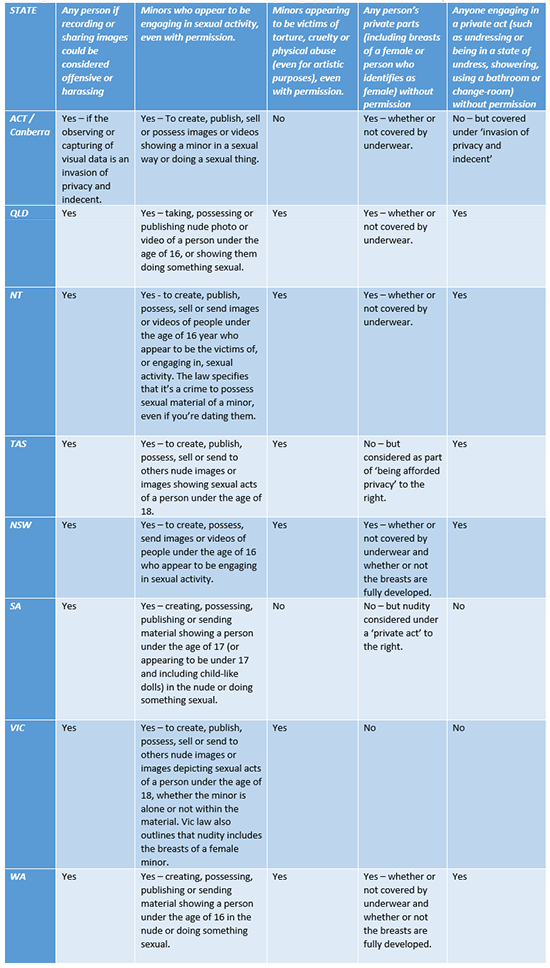Almost everybody these days owns a smartphone with a camera and this has greatly increased the number of photos and videos captured in public. Very few people understand what the law is in regards to using them though. You may have believed it was illegal for someone to photograph or film you without permission, but it’s not that simple.
When can a person take your photo without permission?
- If you’re physically on private property at the time a photo of you has been taken and so is the photographer, you may be able to prevent the photos being used based on trespass laws. We discuss this in more detail below.
- In all states, it’s illegal to use images (photos or film) of a person without their permission if the sharing of those images could be considered offensive or harassing.
- It’s also an offence in all states to take photos or film – even with permission – of minors who appear to be engaging in sexual activity and in most states, this also extends to those appearing to be the victims of torture, cruelty or physical abuse, even if the images are for artistic purposes.
- In most states, it’s against the law to film a person’s private parts (including breasts of a female or person who identifies as a female) or someone engaging in a private act (such as undressing or being in a state of undress, showering, using a bathroom or change-room) without permission.
If any of the above circumstances apply to you, we suggest seeking legal counsel.
According to the criminal laws of each state, it’s an offence to photograph, film or watch with the help of a device and without permission…
Other Resources
Snapshot on Privacy – when is photography illegal?
 Australia does not have clear definitive laws when it comes to privacy and photography. We don’t have laws that give you a right to privacy in general, which means there’s no law stating that an image of you can’t be used without your permission.
Australia does not have clear definitive laws when it comes to privacy and photography. We don’t have laws that give you a right to privacy in general, which means there’s no law stating that an image of you can’t be used without your permission.


